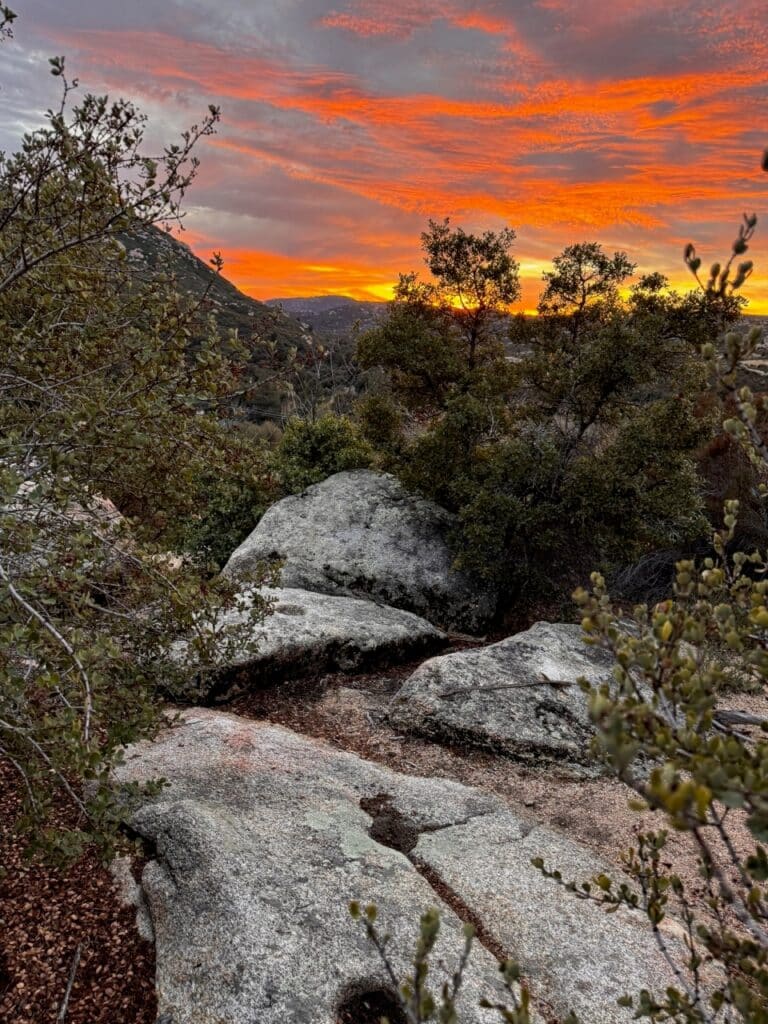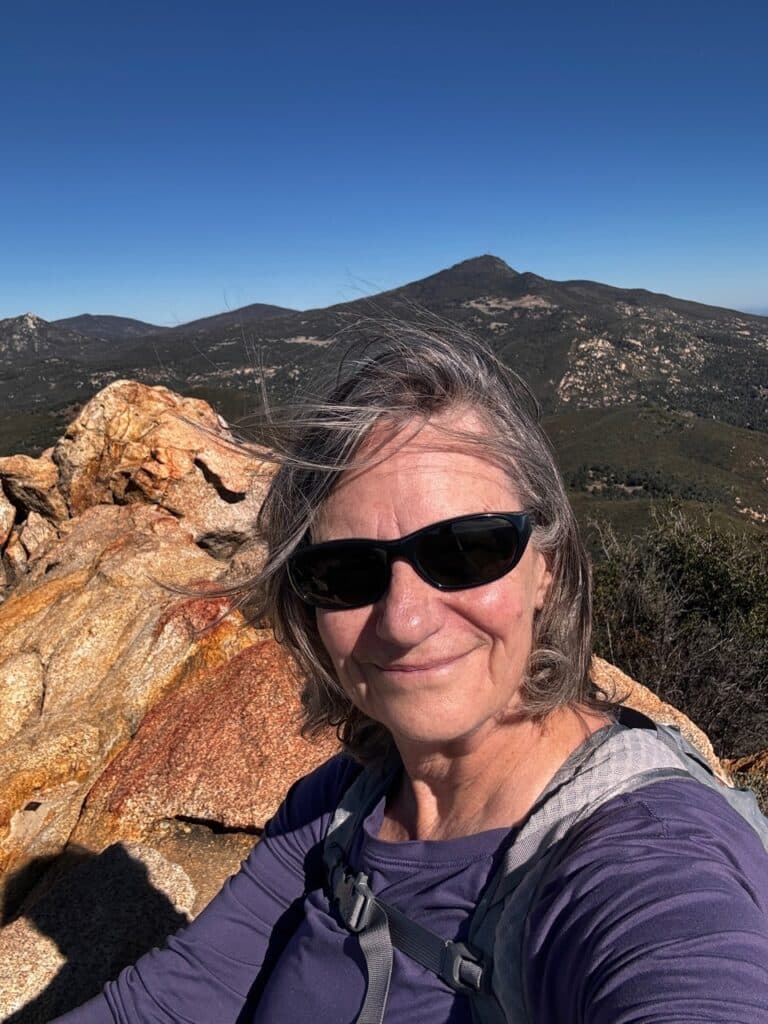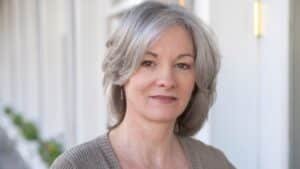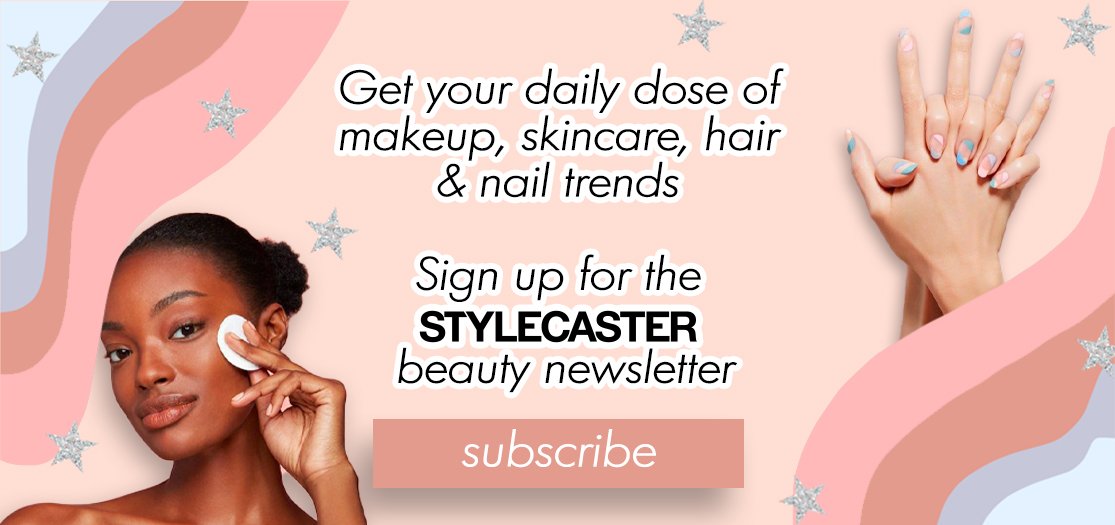
I love to walk. I’ve travelled to many beautiful places on foot. Whether climbing to the rocky summit of a mountain, standing at the base of a refreshing waterfall or just taking a stroll around the block, walking brings me sanity and joy. It’s a non-negotiable part of my daily movement practice.
So when we checked into our southern California campground a few weeks ago, I inquired about local hikes. The ranger, a woman who looked to be about my age, handed me a copy of a hand-drawn map of trails through the oaks and chaparral in the hills above the campground. She pointed out the location of historic grinding rocks used by people of the Kumeyaay nation to process acorns.
And then, with a withering look, she cautioned, “But, all these trails are very up and down.” I felt myself bristling at her assumption that I might not be fit for such adventure. I said, perhaps a bit too forcefully, “That’s exactly what I’m looking for!”

What I wanted to shout was, “You obviously don’t know who I am!” I felt defensive and unseen. The tone of the ranger’s warning cut deep into my sense of myself as a strong, capable person.
Invisible Ageism
Ageist stereotypes are so ingrained in our culture that we often don’t even notice them, at least not consciously. Perhaps you’ve experienced microaggressions like these:
- The bank teller calls you “sweetie.”
- You can’t find a birthday card for a friend of a certain age that isn’t a degrading joke about growing old.
- A health provider speaks to you as though you were less than a full-grown adult.
- You feel an ache or pain and automatically think, “Well, that’s just the price of getting old.”
These “everyday verbal, nonverbal, and environmental slights, snubs, or insults, whether intentional or unintentional, communicate hostile, derogatory, or negative messages” to people because of their age.
What Is Ageism?
Ageism, like all -isms, causes real damage. “Attitudes about age – as well as race and gender – start to form in early childhood,” writes Ashton Applewhite, author of the ground-breaking manifesto, This Chair Rocks.
Applewhite says, “Over a lifetime [these attitudes] harden into a set of truths: ‘just the way it is.’ Unless we challenge ageist stereotypes – Old people are incompetent. Wrinkles are ugly. It’s sad to be old – we feel shame and embarrassment instead of taking pride in the accomplishment of aging. That’s internalized ageism.”
Applewhite explains that ageism makes growing older much harder than it has to be by preying on our fears and negating the benefits of aging. “It damages our sense of self, segregates us, diminishes our prospects, and actually shortens lives.”
Ageism Causes Real Damage
Being exposed to just a few minutes of negative stereotypes about aging, says Yale professor and social psychologist Becca Levy, can decrease physical and cognitive abilities. Dr. Levy is one of the leading experts on the psychology of successful aging and author of the award-winning book, Breaking the Age Code: How Your Beliefs About Aging Determine How Long and Well You Live.
She’s demonstrated through her research that many health problems formerly considered to be entirely due to the aging process, such as memory loss, hearing decline, and cardiovascular events, are instead influenced by the negative age beliefs that dominate in the US and other ageist countries. Levy offers surprising evidence that one of the best ways to live a long and healthy life is to rethink our own ingrained stereotypes about what it means to be an older person.
And before you dismiss this idea as a way to just paste a fake smile on the process of aging, take a moment to explore your own beliefs about aging. Here is a link to Dr. Levy’s quiz about images of aging. It asks you to think about a short list of words (healthy, senile, capable, helpless, active, grumpy, wise) and how they match with the images or pictures that you have in your mind of older people. What you really think just might surprise you!
Let’s Talk About Ageism
Both Becca Levy and Ashton Applewhite believe that awareness is the first step to undoing ageism. This is how we begin to understand thatpersonal problems, such as the microaggressions listed above, are actually widely shared social problems that require collective action. That’s why I’m inviting you to join a conversation about how negative and positive perceptions of aging affect our health so deeply. Together, we’ll explore the ways we think about aging and how these beliefs impact our health in ways big and small.
I’m holding an Aging Well Book Club, and Breaking the Age Code is the winter selection for three monthly gatherings beginning on Thursday December 21. I’m inviting Sixty and Me sisters to join for free!
Meanwhile, back at the campground, I have easily climbed up to the grinding rocks many times and stood admiring the expansive westerly views and more than a few glowing sunsets. From this lofty place, I’m able to reflect on the good life I’m living in my early retirement years. Let’s bust up those old, tired stereotypes and support each other to walk new pathways towards aging well.

Read more AGEISM – ARE OLD WOMEN THEIR OWN WORST ENEMIES?
Let’s Have a Conversation:
Have you felt the physical, mental or emotional impact of ageist microaggressions? Are you able to recognize ageism in the moment or only after the fact? How have you been able to respond to ageism when you encounter it in society and in your own life?





